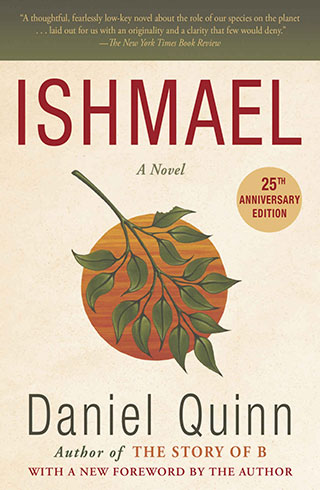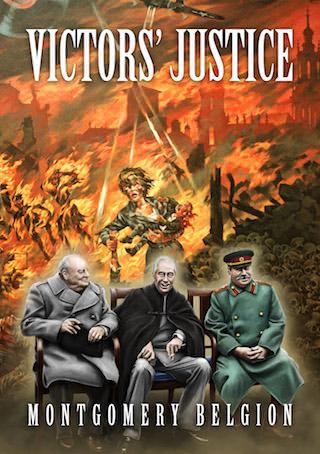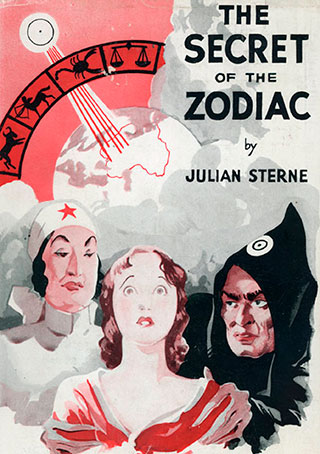Radical Leadership: Turning the Tables on Soft Slavery
“Quis custodiet ipsos custodes? Who will police the police themselves?” — Juvenal.
What do we do when power corrupts, as it tends to? What do we do in the face of tyrannical governments, uncontrollably oppressive dictatorships, and police or judicial corruption and overreach? What do we do with the rampant soft slavery that surrounds us? Do we just shrug our shoulders and trust in the chain of obedience, even though the chain of obedience is the source of the problem? Do we just indifferently bury our head in the sand and hope that the Powers That Be protect our asses while we’re and blinded by our faith in the system?
Governing the precept that humans are fallible, imperfect, and prone to make mistakes, especially when it comes to power, it stands to reason that confiding in a system made up of humans wielding power is absurd. It’s circular reasoning at its worst. As Edward Abbey wisely surmised, “Since few men are wise enough to rule themselves, even fewer are wise enough to rule others.” Indeed. So, it stands to reason that attempting to lead (rule) ourselves (despite our personal failures) is superior to allowing others to lead (rule) us (since power tends to corrupt).
Common sense, right? Not so fast. As Will Rogers famously quipped, “Common sense ain’t so common.” People are unlikely to question a system they’ve been indoctrinated into accepting, even if that system goes against common sense, the golden rule, and the non-aggression principle. People are more likely to stick to what they’ve been conditioned to believe. Whether that belief is political or religious or both.
Overcoming this takes a particular flavor of courage that doesn’t readily exist in the average person. It’s a kind of courage that must be birthed through great psychological pain and suffering, usually at the death of one’s innocence. It must be nursed and cultivated daily, lest it slip back into passivity or back into typical, ineffective, and outdated modes of courage. It must be guided by a unique and daring flavor of leadership: a radical leadership that audaciously checks and balances constructs of power and teaches others how to do the same.
Becoming Free
“We are all born free and spend a lifetime becoming slaves to our own false truths.” — Atticus.
Radical leadership begins by overcoming false truths. A false truth is any belief that is deemed invalid according to cosmic law. It’s our responsibility alone to figure this out. Nobody else can do it for us. We may get lucky and have a teacher/leader who guides us toward a truth that is deemed valid according to cosmic law, but we should not count on getting so lucky. It’s our responsibility alone to question what we’ve been taught, no matter how wise or enlightened our teachers/leaders seem to be. Because, at the end of the day, even our teachers/leaders are fallible human beings. And even the wisest and most enlightened among them are still susceptible to the seductive lure of power. As Abraham Lincoln said, “Nearly all men can stand adversity, but if you want to test a man’s character, give him power.”
It is for that reason that Nature itself is usually a better teacher/leader than almost any human. Even better: teachers who are in touch with Nature. Of course, as children, we have no choice but to go along with whatever agenda our parents/teachers/leaders have set out for us. But there will come a time later, usually after we’ve left home, when that agenda/belief must be questioned. It may turn out that, upon questioning these agendas/beliefs to the nth degree, they come out the other side of the “cocoon” as worthy and valid of cosmic truth. But this will usually not be the case. And that’s okay. Because then we’ll have more reason than ever to become free.
What’s crucial to understand is that freedom is almost entirely psychological in nature. In today’s day and age, it is less about breaking free physically (from hard overt slavery), and more about breaking free psychologically (from soft covert slavery). Breaking free psychologically is astronomically more difficult than breaking away physically, because it is all done inside us. Deep inside us, where our demons, repressed shadows and cognitive dissonance are all tangled up in a knot that seems impossible to untie. That’s where radical leadership comes in.
Beyond Courage
“She wasn’t afraid to be herself. When everyone said, ‘be a lamb,’ She showed her fangs and became a wolf.” — Unknown.
Untying the Gordian Knot of our indifference is an arduous process. Ultimately it goes beyond courage. It is audacious, verging on insouciant. It is radical in the sense that it is revolutionary. It’s a self-revolution that overthrows cultural conditioning and political/religious brainwashing and gets straight at the heart of what it means to be a vulnerable human being in a hostile world.
Radical leadership sheds the yoke of established authority by ruthlessly questioning it. What emerges is an authority of self, defiant and challenging the entire notion of authority, so as to get to the root of the issues at hand. It dares to dissect such notions as “taken for granted” and “it’s just the way things are,” revealing the stagnant and rotting guts decaying inside, and compelling others to replace them with the proactive and courageous guts of progressive evolution instead.
Radical leadership jump-starts the passive citizen by exposing intellectual laziness and system indifference as unhealthy means to a corrupt end. It reveals the hidden chains to the soft slave. It’s a blaring alarm clock in an all too comfortable room, waking us up to the fact that our comfort and security has gotten out of hand and is indirectly destroying lives: our lives, the lives of others, and the nonhuman lives of the biotic community. As Benjamin Franklin once said, “Those who would give up essential Liberty, to purchase a little temporary Safety, deserve neither Liberty nor Safety.”
Radical leadership guides others to a shedding of superfluous conditioning, unhealthy indoctrination, and dogmatic brainwashing by helping them to question things to the nth degree and then building them back up equipped with the psychological tools needed to leverage Truth (despite false truth) through the healthy filter of cosmic law. What emerges is a being capable of distinguishing valid from invalid, healthy from unhealthy, and right from wrong.
When it comes to the disease of entrenched and overreaching power constructs, radical leadership is the cure. The power-tripping cop is readily handled by the razor-sharp non-violent logic and reasoning of the radical leader holding true to his core principles, leaving the cop with a cognitive-dissonance-shredding choice: be a good human being or be a “good” cop.
READ: THE PSYCHOLOGY OF SOFT SLAVERY
As Doctor Robert Higgs decisively stated, “The whole Good Cop/Bad Cop question can be disposed of decisively. We need not enumerate what proportion of cops appear to be good or listen to someone’s anecdote about his uncle Charlie, an allegedly good cop. We need only consider the following: (1) A cop’s job is to enforce the laws, all of them; (2) Many of the laws are manifestly unjust, and some are even cruel and wicked; (3) Therefore every cop has to agree to act as an enforcer for laws that are manifestly unjust or even cruel and wicked. Therefore, there are no good cops.”
So, who will guard the guardians themselves? Who will police the overreaching police despite entrenched power? The answer is us. All of us, picking up the gauntlet of radical leadership. It begins with questioning authority. All authority. Including our own. And especially including those in power. If, after this deep questioning, the answers are found to be logical, reasonable and do not contradict cosmic law, then they are valid and can be taken sincerely moving forward toward a progressive evolution of our species. If, however, they are illogical, unreasonable and contradict cosmic law, then they must be discarded, regardless of manmade rules, laws, or the so-called “authority” that enforces them.
It begins with questioning authority and it ends with radical leaders. The wisdom gained from radical leadership shows us how to live healthy lives. We can define wisdom as a practical understanding of cosmic law and skill in applying it (intention). There are too many leaders telling people how to think. We desperately need more radical leaders who teach people how to think for themselves.
Digital discoveries
- Migliori Casino Online
- Casino Non AAMS
- Siti Casino
- Sites De Paris Sportifs Belgique
- Tous Les Sites De Paris Sportifs Belgique
- Meilleur Casino En Ligne Belgique
- Casino En Ligne Belgique Bonus
- I Migliori Casino Online
- Non Aams Casino
- Scommesse Italia App
- Migliori Casino Online Esteri
- Paris Sportif Crypto Sans Kyc
- Site De Paris Sportif
- Sweet Bonanza Avis
- Paris Sportif Ufc
- オンラインカジノ 出金早い
- Casino Live En Ligne Français
- Site De Paris Sportifs
- Meilleurs Nouveaux Casinos En Ligne
- Casino En Ligne Français
- Casino En Ligne
- Casino Retrait Instantané
- Casino En Ligne Fiable
- Meilleur Casino En Ligne 2026
- Casino En Ligne Retrait Immédiat
- Casino Français En Ligne
- Casino Italia Non Aams
- Casino Con Free Spin Senza Deposito
- Siti Di Scommesse Non Aams
- Migliore Casino Non Aams
- Casino Online Non Aams 2026
- 토토사이트 모음
- Top 10 Trang Cá độ Bóng đá
- Casino En Ligne
- Casino En Ligne France
- Casino En Ligne Argent Réel
- Casino En Ligne Retrait Immédiat 2026
- Nouveau Casino En Ligne 2026
- Casino Online Stranieri








